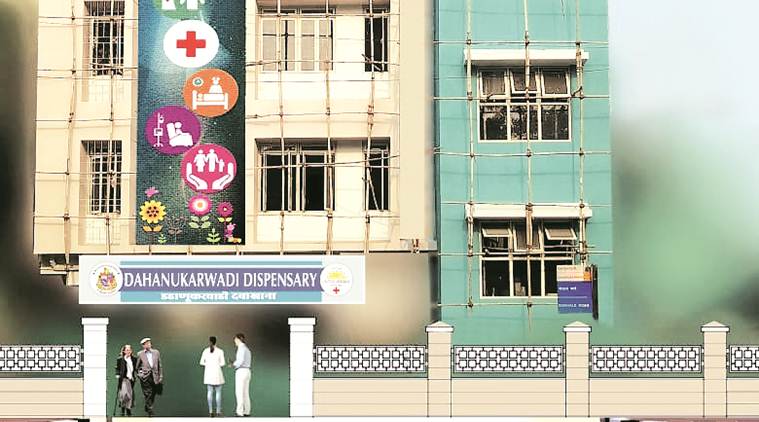
IN A bid to strengthen primary healthcare, the Brihanmumbai Municipal Corporation (BMC) has undertaken repairs to 25 municipal dispensaries across the city that were in a dilapidated condition. Under the pilot project, the civic body will also standardise these dispensaries to give them a uniform appearance and ensure a basic list of medical items are available at these health centres.
Last year, in BMC’s annual budget estimates for 2018-19, the civic body had proposed to standardise 25 dispensaries under a pilot project. A senior civic official from the health department said, “There are a total 174 dispensaries across the city but most do not have basic medicines to treat patients. On account of this, patients with minor ailments such as cold or cough visit BMC’s major or peripheral hospitals that are meant to deal with more serious conditions and surgeries.”
Speaking to The Indian Express, Additional Municipal Commissioner Idzes Kundan said, “The standardisation of some dispensaries is nearly complete. The strengthening of dispensaries is much needed as it will reduce the burden on major municipal hospitals. Lakhs of patients come to the municipal hospitals each year for treatment. Due to poor primary healthcare facilities, the major hospitals end up treating minor diseases. We have made a list of 36 items that need to be kept at every dispensary. Most have now bought these items.”
She added that the problem of staff crunch in these dispensaries will also be resolved. “We are filling all the vacant posts,” she said.
If successful, poor will benefit the most
According to officials, the 36 items every municipal dispensary will now have include equipment to treat basic communicable and noncommunicable diseases. They will be able to check blood pressure, treat diabetes, hypertension and give medicines for cold, cough, fever and administer first aid. The dispensaries will be given a standard look wherever the BMC owns the entire building. If the dispensary is located in another property, it will undergo basic repairs.
The BMC is replicating a model it used for repairs to municipal schools, which was praised because of its creative designing and painting. The BMC has kept aside Rs 50 crore for repairs to dispensaries and maternity homes.
Meanwhile, the BMC has finalised contractors for repair and reconstruction of three hospitals, at a cost of Rs 900 crore. These hospitals include the MT Agarwal Hospital in Mulund, Shatabadi Hospital in Govandi and Bhagwati Hospital in Borivali.